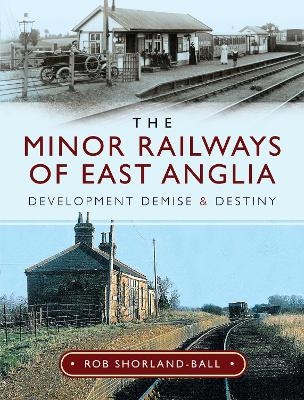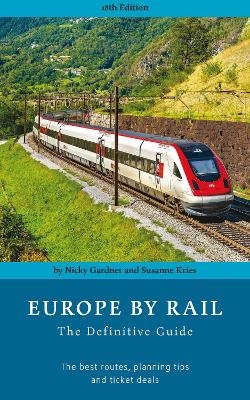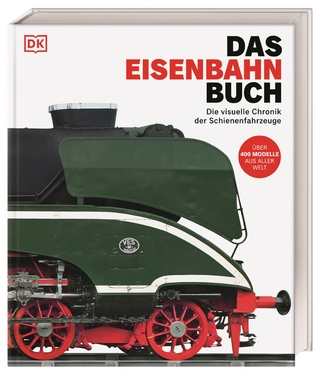
The Minor Railways of East Anglia
Development Demise and Destiny
Seiten
2020
Pen & Sword Transport (Verlag)
978-1-5267-4481-4 (ISBN)
Pen & Sword Transport (Verlag)
978-1-5267-4481-4 (ISBN)
Good Informative Text, Good Selection of Illustrations, New Facts, Good Index.
Rob Shorland-Ball is a former teacher and is also a born story teller and is well aware of the strong local loyalties in East Anglia.
Norfolk, Suffolk and Essex are considered to be very different separate and independent areas by their inhabitants
When the author worked in Suffolk he explained that he came from Cambridge which he believed was the front door of East Anglia, an elderly Suffolk man to whom he was speaking, paused for a while and then said, with unarguable finality, here in Suffolk if Cambridge exists at all , it is a back door and rarely used.
The minor railways illustrated in this book were once busy transport links and made vital contributions to the social and business heritage of the area they served.
By the 1950s and 60s, when the author explored them, they were rarely used, so needed to be recorded and their stories told before they were forgotten entirely.
To bring this book up to date, the final section is called Destiny because some of the track beds have survived and flourished with new usage as restored heritage railways, footpaths and cycleways and one route as a busy busway.
Rob Shorland-Ball is a former teacher and is also a born story teller and is well aware of the strong local loyalties in East Anglia.
Norfolk, Suffolk and Essex are considered to be very different separate and independent areas by their inhabitants
When the author worked in Suffolk he explained that he came from Cambridge which he believed was the front door of East Anglia, an elderly Suffolk man to whom he was speaking, paused for a while and then said, with unarguable finality, here in Suffolk if Cambridge exists at all , it is a back door and rarely used.
The minor railways illustrated in this book were once busy transport links and made vital contributions to the social and business heritage of the area they served.
By the 1950s and 60s, when the author explored them, they were rarely used, so needed to be recorded and their stories told before they were forgotten entirely.
To bring this book up to date, the final section is called Destiny because some of the track beds have survived and flourished with new usage as restored heritage railways, footpaths and cycleways and one route as a busy busway.
Rob Shorland-Ball grew up in Cambridge, worked for British Railways at Cambridge Station and was deputy head of project development director at the National Railway Museum York, from 1987-1994. He has an extensive knowledge of railways, both as a researcher and author in addition to practical steam engine experience, as a cleaner, fireman and driver of traction engines and steam locomotives. He recalls watching, photographing and travelling on many railways to and from Cambridge or further afield in East Anglia. British Railways was beginning to introduce Diesel Multiple Units which provided a unique opportunity to sit at the front of the train and share the drivers eye view of the journey.
| Erscheinungsdatum | 19.10.2020 |
|---|---|
| Zusatzinfo | 200 colour & black and white illustrations and maps |
| Verlagsort | Barnsley |
| Sprache | englisch |
| Maße | 216 x 282 mm |
| Themenwelt | Natur / Technik ► Fahrzeuge / Flugzeuge / Schiffe ► Schienenfahrzeuge |
| Technik | |
| ISBN-10 | 1-5267-4481-3 / 1526744813 |
| ISBN-13 | 978-1-5267-4481-4 / 9781526744814 |
| Zustand | Neuware |
| Informationen gemäß Produktsicherheitsverordnung (GPSR) | |
| Haben Sie eine Frage zum Produkt? |
Mehr entdecken
aus dem Bereich
aus dem Bereich
Das Beste aus Stadt und Land.
Buch | Softcover (2024)
VUD Medien (Verlag)
12,00 €
Buch | Softcover (2024)
hidden europe publications (Verlag)
26,15 €
die visuelle Chronik der Schienenfahrzeuge
Buch | Hardcover (2024)
DK Verlag Dorling Kindersley
34,95 €


